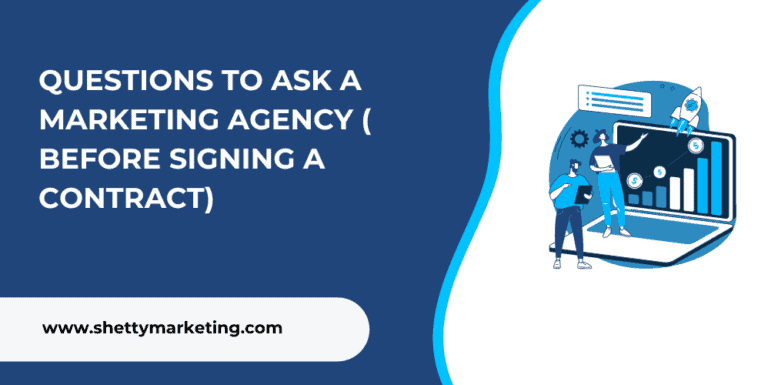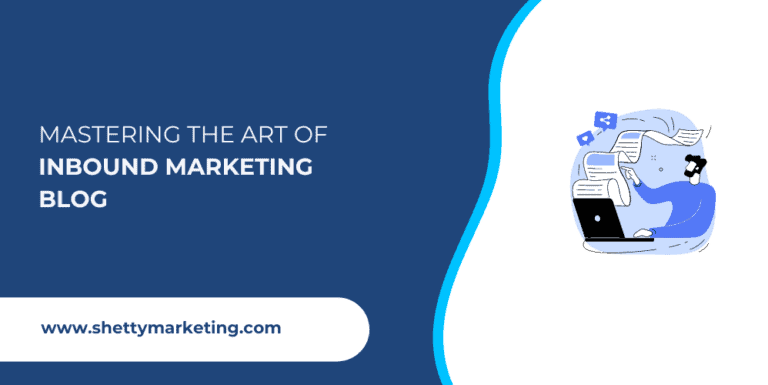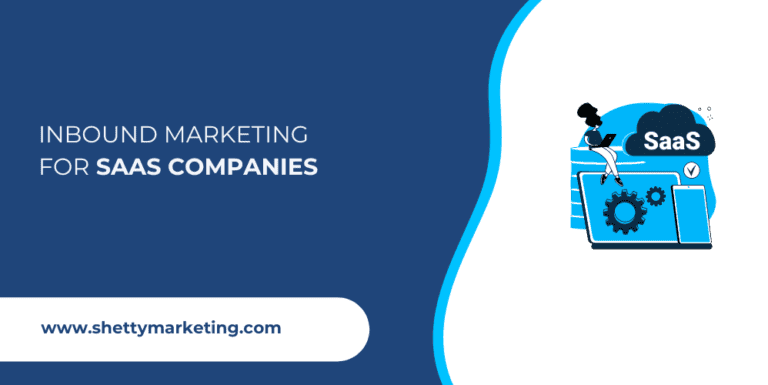Given the sheer number of marketing agencies out there, the typical questions you ask a marketing agency may not be sufficient in finding the right partner.
Even though it’s important for you to have a good understanding of the timeline, cost, and scope of the marketing project, you should ask the right questions before you outsource your marketing projects.
In this blog, I’ll uncover the burning questions you should grill a marketing agency with, to make sure they’re a perfect match for your business goals.
Do they have any failed projects? (and how do they bounce back?)
It is crucial to ask a marketing agency about their track record and whether they have experienced any failed projects.
This is a qualifying question because if the agency claims to have never had any failed projects, they are likely not being transparent or honest.
A marketing agency that truly cares about helping your business will be upfront about any failures they have encountered. They will not shy away from discussing these experiences but view them as opportunities for growth and learning.
Furthermore, it is not only important to ask if they have had failed projects but also to inquire about how they handled these situations and what measures they took to recover a project that was on the verge of failure.
This will give you valuable insights into their problem-solving abilities and their commitment to delivering successful results.
Ultimately, a trustworthy marketing agency will acknowledge their failures, discuss how they overcame them, and provide examples of how they were able to turn around challenging situations. By asking this question, you can gauge the agency’s transparency, resilience, and dedication to their clients’ success.
Do they REALLY understand your industry? (What is their specialty?)
Here’s the thing, most well-established businesses go for an in-house team because they fear that marketing agencies won’t be able to completely grasp how their industry works.
An in-house team dedicates its time solely to the company, whereas an agency may be working with multiple clients from various industries.
However, it’s important to note that there are niche marketing agencies out there that can truly understand and cater to your industry-specific needs.
Before hiring a marketing agency, it’s essential to ensure that they have experience in your industry. Look for an agency that is an expert in your field, with a proven track record of successful campaigns and industry experience. Ask for case studies and references from previous clients in your industry to gauge their level of expertise.
What is a niche marketing agency?
A niche marketing agency is a specialized marketing agency that exclusively focuses on serving clients within a specific industry or market segment.
Unlike general marketing agencies that work with a diverse range of clients, niche agencies have in-depth knowledge and expertise in a particular field.
Learn more: How to find a business niche (with one easy tool)
I vividly recall my experience working in a marketing agency that specialized in serving businesses in the moving and packing industry.
This niche focus allowed us to truly understand the unique challenges, target audience, and marketing strategies required to effectively promote moving and packing services. As a result, our agency was able to deliver highly tailored solutions and achieve outstanding results for our clients.
Collaborating with a niche marketing agency offers several advantages.
Firstly, they have a comprehensive understanding of your industry, eliminating the need to spend valuable time educating them about your specific market.
Related: What can you do to get the attention of the potential customers
This means they can quickly grasp your business goals, target audience, and current marketing efforts, enabling them to provide strategic recommendations and execute effective campaigns from the start.
Additionally, niche agencies often have a deep network of industry contacts, potential partners, and influencers, which can further enhance their ability to promote your business.
With their specialized knowledge and connections, they can help you navigate industry trends, identify opportunities for growth, and stay ahead of the competition.
When searching for a marketing agency, consider collaborating with a niche agency that aligns with your industry or market segment. This will ensure you work with professionals who speak your language, understand your unique challenges, and have the expertise needed to maximize your marketing efforts.
What KPIs do they track? (What tool do they use for analytics?)
It’s important to understand what key performance indicators (KPIs) they track and what website traffic measurement tools they use.
This will give you valuable insight into their campaign goals and whether they align with your business objectives.
While some agencies may still focus on traditional KPIs like click-through rates (CTR) and reach, it’s worth questioning their effectiveness in today’s digital landscape.
If your goal is to drive measurable results such as leads or purchases, it’s crucial to find an agency that tracks metrics like return on ad spend (ROAS), and cost per acquisition (CPA).
Not sure what these metrics are? Let me explain
ROAS (Return on ad spend)
ROAS is a metric that helps evaluate the effectiveness of advertising campaigns by measuring the revenue generated from each dollar spent on advertising. It provides insights into how effectively the agency’s marketing efforts are driving sales or conversions.
For example, suppose you are considering a digital marketing agency to run your social media ads. By asking about their ROAS methodology, you can determine if they track and analyze the revenue generated from the ad campaigns, comparing it against the ad spend. This information is invaluable in understanding the agency’s ability to deliver results and optimize your marketing budget.
Inquiring about ROAS will help you assess the agency’s level of expertise in measuring and optimizing advertising campaigns.
It also shows that you are focused on tangible results and return on your marketing dollars. So, don’t forget to ask the prospective agency about their approach to measuring ROAS to ensure a successful partnership.
Cost per Acquisition
Cost per acquisition (CPA) is a metric used in marketing to measure the cost of acquiring a new customer or lead. It calculates the average amount spent by a company on marketing and sales efforts to generate a single conversion. This metric is crucial for businesses to understand the effectiveness and efficiency of their marketing campaigns.
To calculate the CPA, divide the total marketing and sales costs by the number of acquired customers or leads during a specific period. For example, if a company spent $10,000 on marketing and sales activities and acquired 100 customers, the CPA would be $100 ($10,000 / 100).
Knowing the CPA helps businesses allocate their marketing dollars more effectively. It allows them to identify which marketing strategies or channels are delivering the most cost-effective results. By focusing on lowering the CPA, businesses can optimize their marketing efforts and increase their return on investment.
By tracking CPA, businesses can evaluate the success of their marketing campaigns. They can determine if they are attracting the right target audience and if their marketing messages are resonating with potential customers. Additionally, monitoring CPA can help identify areas for improvement and optimize marketing efforts to achieve better results.
Overall, understanding and optimizing the cost per acquisition is essential for businesses looking to make the most of their marketing budget and drive successful campaigns.
Measurement tools
The agency you choose to work with should have website measurement tools that may assist you in determining whether their marketing efforts are effective or not.
Essentially, agencies use these tools to provide meaningful, visually appealing reports on the traffic and conversions you receive through various platforms.
If the agency handles your LinkedIn advertisements, Facebook ads, and Google ads, your dashboard should appear similar to the snapshot below.
The above snapshot of the dashboard is from Google Looker Studio, the commonly used tool used by agencies to generate reports.
The tool gets data from Google Analytics and various other sources such as LinkedIn ads, Facebook, Search Console, and so on to generate insightful reports.
If you’re looking to make data-driven decisions from these insights, it’s important to choose an agency that knows how to report effectively.
Ask about their typical process (Do they have the right staffing?)
It’s important to ask about their typical process to ensure it aligns with your needs and expectations.
Start by finding out how they provide updates on the progress of your projects. Do they prefer email communication, or do they use tools like Slack for direct conversations?
This will give you an idea of their level of transparency and communication style. Additionally, inquire about the time it takes for them to deliver each component of your marketing strategy.
While they may have other clients to attend to, it’s crucial that you feel like a priority and receive high-quality work in a timely manner.
Request a timeline and roadmap before getting started to ensure that you are on the same page and understand the expected milestones and deliverables.
Remember, your business goals should be at the forefront of the agency’s efforts, so it’s important to ask these questions to find a marketing agency that can provide the level of involvement, communication, and expertise you require.
When should I expect results from a marketing agency? (Set measurable goals)
it’s natural to wonder when you can expect to see results from a marketing agency.
After all, as a business, you’re focused on achieving real, tangible outcomes.
However, it’s essential to steer clear of being swayed by fancy vanity metrics and visually appealing graphs, as these might not truly represent the impact on your bottom line.
Results can vary depending on the type of service you are investing in.
Some strategies, such as search engine optimization (SEO) or branding, may take some time to develop and yield meaningful outcomes. These approaches require a long-term commitment and a patient approach.
On the other hand, strategies like pay-per-click (PPC) and social media ads can often provide quicker results. These tactics focus on immediate visibility and engagement, allowing you to connect with your target audience and drive conversions promptly.
Ultimately, the timeline for results is influenced by various factors, including the complexity of your marketing goals, the level of competition in your industry, and the resources allocated to your marketing efforts. In some cases, digital marketing might not just work for a business. I have written a separate blog on this topic.
Read more: Does digital marketing work for all businesses(and does it fall under your budget?)
During the vetting process of selecting a marketing agency, it’s essential to discuss realistic expectations for results. A reputable agency will provide a clear understanding of the timeline for achieving specific milestones and goals.
Remember, the focus should always be on delivering measurable results that align with your business objectives, not just vanity metrics. A transparent and open conversation about results and the time it takes to achieve them will help you build a successful partnership with a marketing agency.





